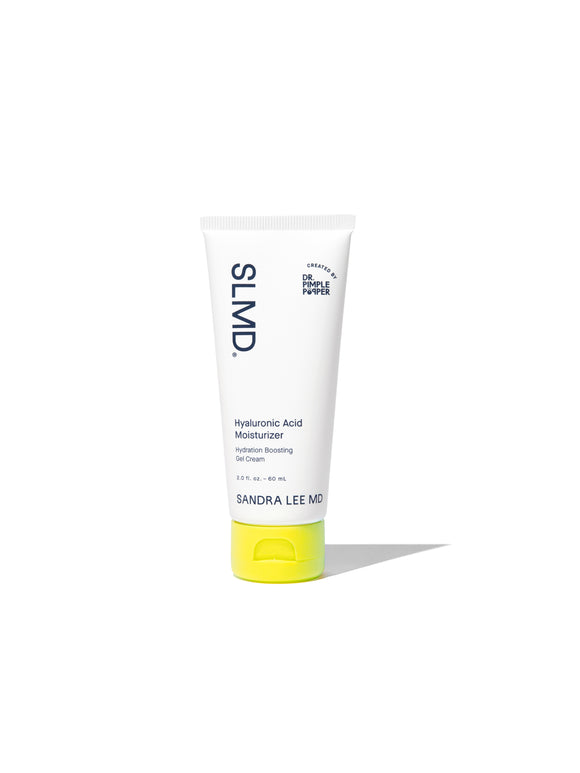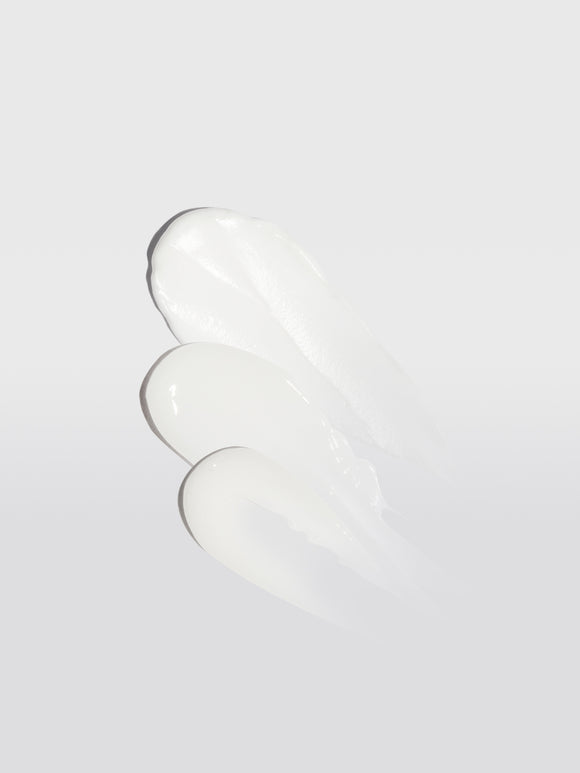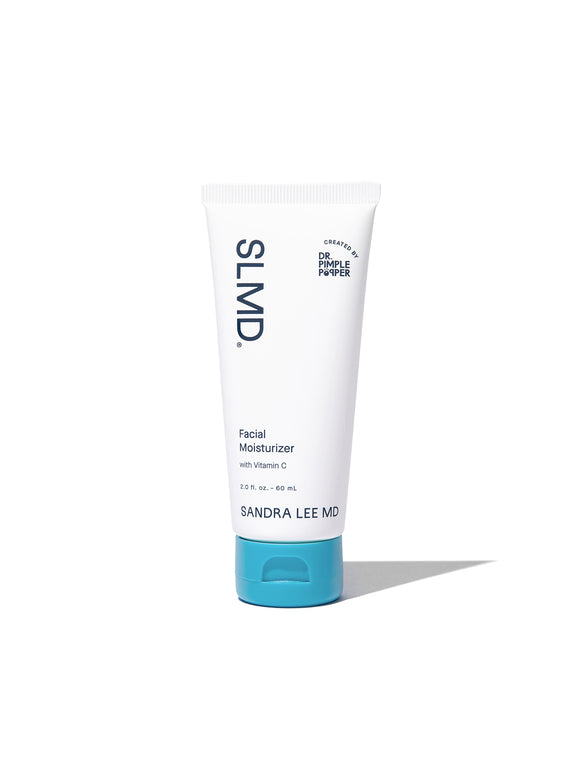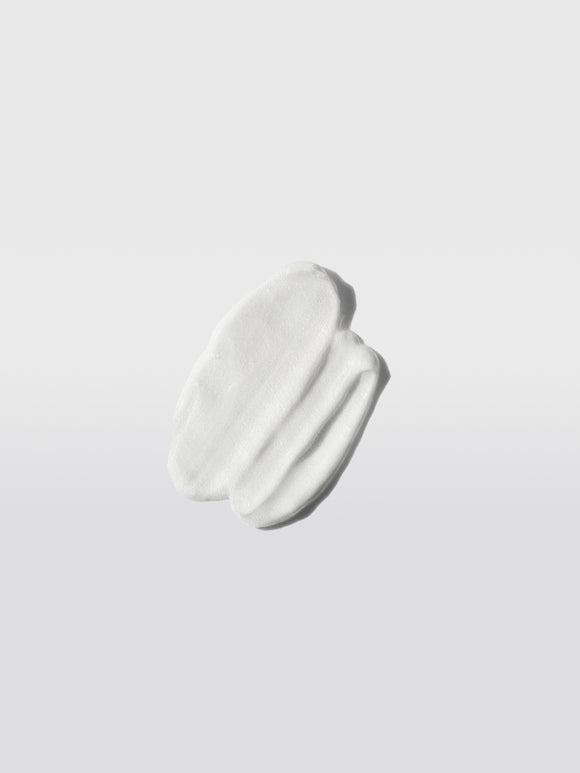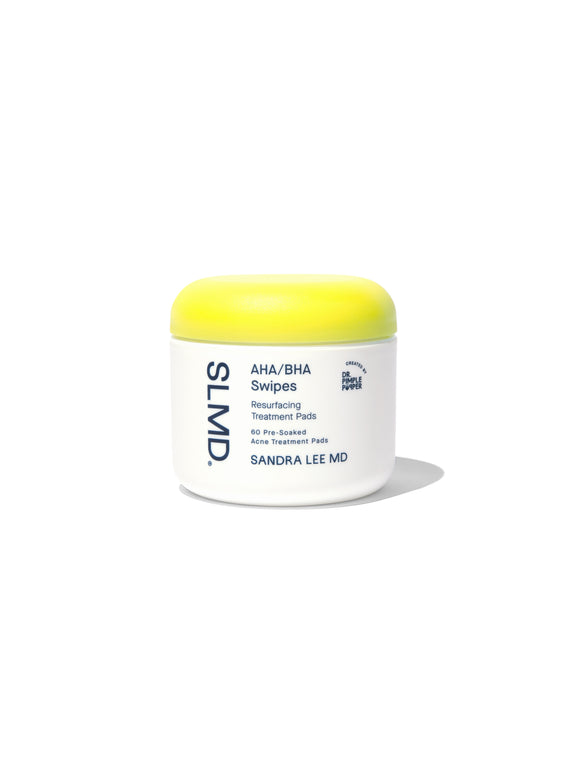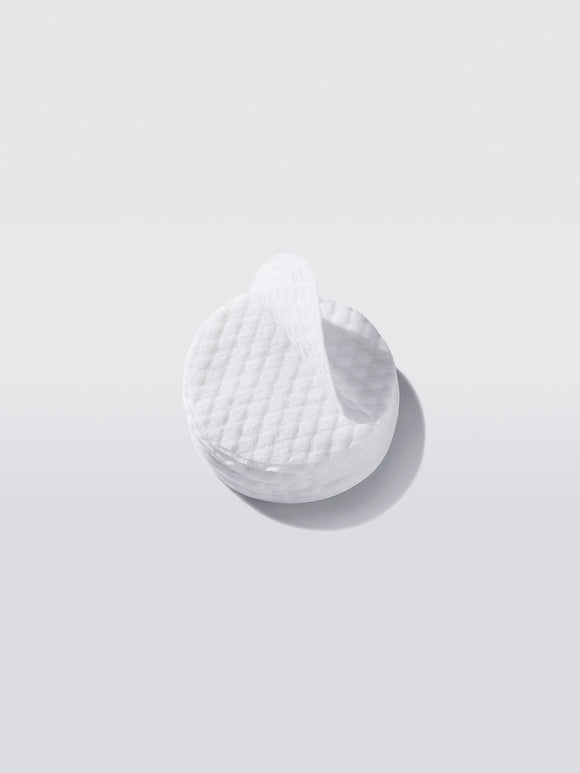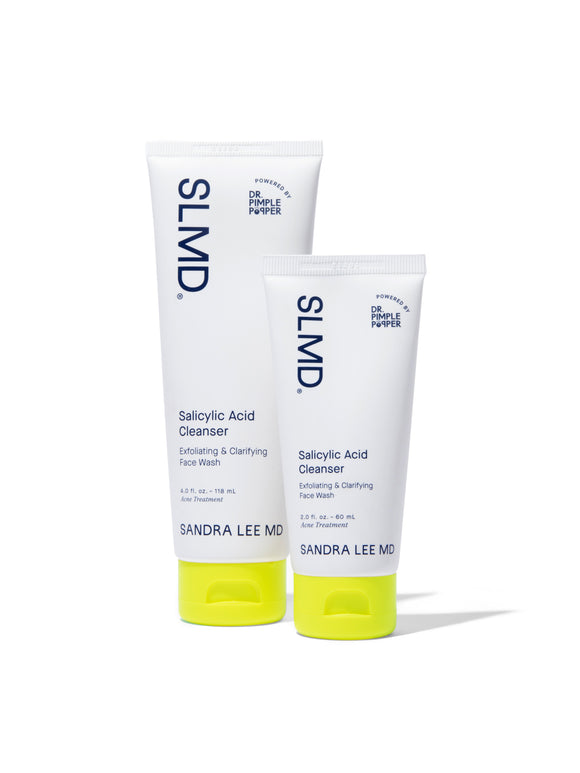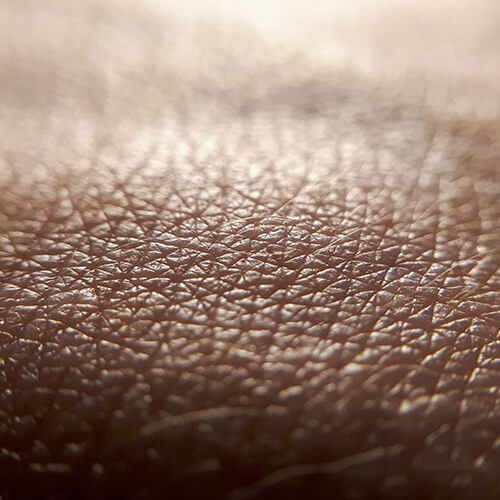
The Skin Microbiome: Why Balance Matters for Healthy Skin
Billions of tiny allies may be the key to your healthiest glow yet.
Published:
4 minute read
Your skin isn’t just yours — it’s home to billions of microscopic organisms. Scientists estimate that only 1–10% of the DNA we carry is human; the rest belongs to our microbiome. While most microbes live in the gut, your skin also hosts a unique ecosystem that plays a critical role in skin health.
According to SLMD Skincare founder Sandra Lee, MD (aka Dr. Pimple Popper), this microbiome is just as important as the skin barrier itself when it comes to staying balanced and healthy. Here’s what you need to know about how it works — and how to care for it.
Article Quick Links
What is the skin microbiome?
Think of your skin’s microbiome as a microscopic fingerprint: no two are alike. At birth, microbes are passed on from your mother — later, you pick them up from food, family, pets, and your environment.
These organisms fall into three main categories:
- Commensal: benefit from humans but don’t affect us
- Mutualistic: benefit both us and them
- Pathogenic: can cause illness if overgrown
When these groups stay in balance, your skin thrives. When they don’t, problems arise.
What makes up a healthy skin microbiome?
Your skin microbiome is made up of a variety of tiny organisms, including:
- Bacteria: The most common residents, with about 1,000 species living on skin, where they help protect against harmful invaders.
- Fungi : A smaller group that naturally live on the skin’s surface and can influence oil balance and barrier function.
- Viruses: Mostly harmless, they interact with bacteria and other microbes to help maintain balance.
The exact balance of these microbes depends on several factors, like:
- Age
- Hormones
- Diet and nutrition
- Lifestyle habits
- Genes
- Overall health
- Environment
Dr. Pimple Popper's Skin Microbiome Support
How does the skin microbiome support skin health?
On a microscopic level, skin is a little like a desert: generally dry and acidic, but dotted with “oases” like hair follicles and oil glands that are packed with microbial life. Different body areas — face, underarms, feet — each host their own microbial communities, adapted to local conditions like sweat, oil, and moisture.
Research shows your microbiome is a crucial partner in everyday skin function. Balanced microbes help:
- Train your immune system to recognize threats
- Strengthen and repair the skin barrier
- Protect against harmful bacteria
- Regulate inflammation
In other words, healthy microbes = resilient skin.
Skin microbiome and common skin conditions
When the microbiome falls out of balance (a state called dysbiosis), it may be linked to skin concerns like:
Scientists are also studying the gut-skin axis: evidence suggests that gut dysbiosis (from poor diet, stress, or antibiotics) can trigger inflammation that shows up on skin. This emerging research highlights how whole-body health influences the skin microbiome.
How to keep your skin microbiome healthy
According to Dr. Lee, supporting your microbiome doesn’t have to be complicated. Her top tips:
- Cleanse gently but consistently. Wash your face twice a day with a formula designed for skin — not harsh soaps that strip natural oils. Try: SLMD Salicylic Acid Cleanser
- Moisturize every day. Even oily or acne-prone skin needs hydration to prevent transepidermal water loss (TEWL), which weakens the barrier. Try: SLMD Facial Moisturizer with Vitamin C, Hyaluronic Acid Moisturizer
- Use targeted treatments wisely. Overdoing actives can disrupt balance. Stick to dermatologist-approved exfoliators and serums. Try: SLMD Retinol Resurfacing Serum, AHA/BHA Swipes
- Protect from UV damage. Sun exposure triggers inflammation and disrupts microbial balance. Daily SPF is a must. Try: SLMD Daily Moisturizer with SPF 15
- Make healthy lifestyle choices. Eat a nutrient-rich diet, exercise, manage stress, and get consistent sleep — all proven to help maintain a balanced skin microbiome.
Dr. Pimple Popper answers skin microbiome FAQs
Q: How can I restore my skin microbiome if it’s out of balance?
A: Focus on gentle cleansing, daily moisturizing, and avoiding harsh or excessive actives. A consistent routine with dermatologist-approved products helps repair balance over time.
Q: Can skincare products damage the skin microbiome?
A: Yes — over-cleansing, using harsh soaps, or layering too many actives can strip natural oils and disrupt beneficial bacteria.
Q: Does diet affect the skin microbiome?
A: Absolutely. A nutrient-rich diet, plus healthy lifestyle choices like sleep and stress management, supports balance from the inside out.
Q: What’s the gut-skin axis — and how does it impact skin?
A: Research shows that gut health and skin health are connected: when the gut microbiome is out of balance, it may trigger inflammation that shows up as skin issues like acne or eczema.
Q: What skincare products support a healthy skin microbiome?
A: Gentle cleansers, daily moisturizers, SPF, and balanced use of treatments like retinol or exfoliating swipes can all help keep your skin microbiome thriving.

Dr. Lee's Last Word
Think of your microbiome as skin’s invisible support system — keep it balanced, and your skin will thank you.





